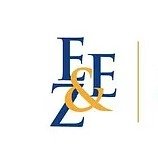Best Hiring & Firing Lawyers in Illinois
Share your needs with us, get contacted by law firms.
Free. Takes 2 min.
Or refine your search by selecting a city:
List of the best lawyers in Illinois, United States
About Hiring & Firing Law in Illinois, United States
Hiring and firing are critical aspects of employment law in Illinois. Both employees and employers need to be aware of their rights and obligations throughout the employment relationship, from recruiting new talent to terminating staff. Illinois is generally considered an at-will employment state, meaning either party can usually end the employment relationship at any time for any legal reason. However, there are important exceptions and legal protections that impact both hiring and firing, drawn from state and federal laws. Understanding these laws helps ensure fair practices and can help you avoid costly legal consequences.
Why You May Need a Lawyer
There are many situations where seeking legal advice about hiring or firing in Illinois makes sense. If you believe you were wrongfully terminated, have questions about discrimination in hiring, or need to draft employment contracts or severance agreements, a lawyer can help. Small business owners may need legal support to create fair employment policies that comply with both state and federal law. Employers facing allegations of discrimination, retaliation, or wrongful termination will also benefit from legal counsel to protect their businesses and reputation. In short, any time your rights or obligations as an employer or employee are unclear or at risk, getting legal guidance is a wise step.
Local Laws Overview
Illinois employment law is shaped by a combination of state and federal laws. Key areas include:
- At-Will Employment: While most employers can terminate employees for almost any reason, terminations motivated by discrimination, retaliation, or reasons covered by contracts are prohibited.
- Illinois Human Rights Act: Protects employees and job applicants from discrimination based on race, color, religion, sex, national origin, age, marital status, disability, military status, sexual orientation, and more.
- Illinois Wage Payment and Collection Act: Governs wage payment on termination and ensures employees are paid all earned wages and vacation time promptly upon separation.
- Background Checks: Illinois restricts how and when an employer can use credit history and criminal records during hiring, with specific requirements for notification and consent.
- Ban the Box Law: Limits an employer's ability to ask about criminal history on job applications until later in the hiring process.
- Non-Compete and Non-Solicit Agreements: Illinois has specific rules limiting the enforceability of non-compete and non-solicit clauses, especially for lower-wage workers.
- Retaliation Protections: Employees cannot be fired for reporting discrimination, wage violations, workplace safety concerns, or other protected activities.
Frequently Asked Questions
Can my employer fire me for any reason in Illinois?
Generally, yes, but not for illegal reasons such as discrimination or retaliation. If you have a contract, your employment rights could differ.
What counts as wrongful termination in Illinois?
Wrongful termination includes firing someone for discriminatory reasons, retaliation, or breach of employment contract terms.
Are employers required to give notice or severance pay when firing someone?
Unless your contract requires it, Illinois employers are not required to provide advance notice or severance pay, except in some mass layoff situations under federal law.
Is it legal to ask about criminal records or run a background check on job applicants in Illinois?
Employers can conduct background checks, but there are restrictions and requirements about when and how they ask about criminal history, and applicants must be notified if adverse action is taken based on the check.
Can an employer discriminate during the hiring process?
No, Illinois law prohibits discrimination based on characteristics like race, gender, age, religion, sexual orientation, and more throughout the hiring process.
What should I do if I believe I was fired for reporting illegal or unsafe work conditions?
Contact an employment lawyer right away. You may have protection under Illinois whistleblower or retaliation laws and could be entitled to remedies.
Are non-compete agreements enforceable in Illinois?
Non-compete agreements are subject to strict limitations and generally not enforceable for low-wage workers. They must be reasonable in scope and necessary to protect legitimate business interests.
How quickly must employers pay wages after firing or resignation?
In Illinois, employers must pay final compensation, including earned wages and unused vacation, by the next regular payday.
Do I have to sign a severance agreement?
You are not required to sign a severance agreement. Review any document carefully, and consider speaking to a lawyer to understand your rights before signing.
Can job postings specify age, gender, or other protected characteristics?
No. Job postings and advertisements cannot specify preferences or requirements based on protected characteristics under Illinois law.
Additional Resources
Here are some helpful resources for understanding hiring and firing laws in Illinois:
- Illinois Department of Labor: Offers resources for wage, hour, and employment law issues.
- Illinois Human Rights Commission: Handles discrimination complaints related to employment.
- Illinois Attorney General's Office: Provides information on workplace rights and protections.
- Equal Employment Opportunity Commission (EEOC): Federal agency that investigates discrimination claims.
- Legal Aid Organizations: Many local groups offer free or low-cost legal assistance in employment matters.
Next Steps
If you believe your rights have been violated in the hiring or firing process, or if you are an employer seeking to ensure compliance with Illinois law, consider the following steps:
- Gather all relevant documents such as offer letters, employment contracts, termination notices, communications, and pay records.
- Write down a timeline and details of the events in question while they are fresh in your memory.
- Consult with an experienced employment lawyer who can review your case and guide you on the best course of action.
- If your issue involves discrimination, consider filing a complaint with the Illinois Department of Human Rights or the EEOC within the required timeframes.
- Do not sign any agreements or waivers presented at termination without reviewing them or consulting a lawyer.
Understanding your rights and obligations under Illinois hiring and firing law is essential to protecting yourself or your business. When in doubt, seek professional legal advice for your specific situation.
Lawzana helps you find the best lawyers and law firms in Illinois through a curated and pre-screened list of qualified legal professionals. Our platform offers rankings and detailed profiles of attorneys and law firms, allowing you to compare based on practice areas, including Hiring & Firing, experience, and client feedback.
Each profile includes a description of the firm's areas of practice, client reviews, team members and partners, year of establishment, spoken languages, office locations, contact information, social media presence, and any published articles or resources. Most firms on our platform speak English and are experienced in both local and international legal matters.
Get a quote from top-rated law firms in Illinois, United States — quickly, securely, and without unnecessary hassle.
Disclaimer:
The information provided on this page is for general informational purposes only and does not constitute legal advice. While we strive to ensure the accuracy and relevance of the content, legal information may change over time, and interpretations of the law can vary. You should always consult with a qualified legal professional for advice specific to your situation.
We disclaim all liability for actions taken or not taken based on the content of this page. If you believe any information is incorrect or outdated, please contact us, and we will review and update it where appropriate.
Browse hiring & firing law firms by city in Illinois
Refine your search by selecting a city.














